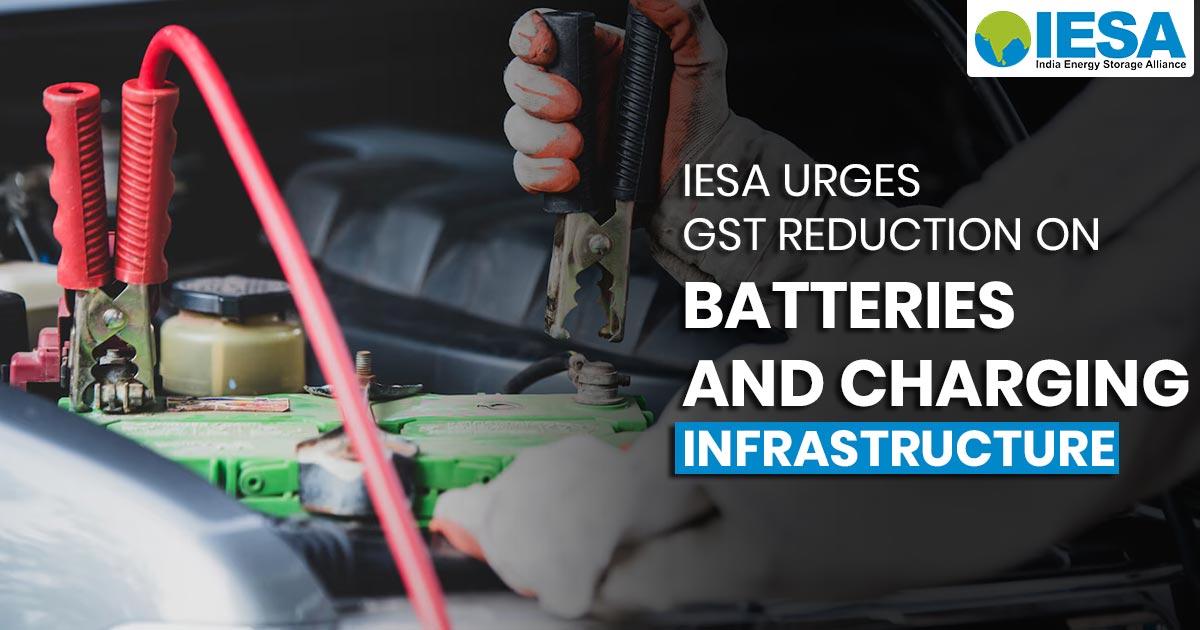
Industry body India Energy Storage (IESA) sought for the government to lessen the Goods and Services Tax (GST) on batteries and electric vehicles charging infrastructure services and battery swapping.
The IESA, with the coming India Energy Storage Week 2024 (IESW) in New Delhi from July 1-5, 2024, proposed the expansion of production-linked incentive (PLI) schemes for battery elements and battery raw materials processing industry, in a wishlist submitted to the government.
In the statement, IESA President Rahul Walawalkar said that lithium-ion batteries’ current GST rate is 18 per cent and other batteries’ is 28 per cent. We want all batteries to come under the 18 per cent GST bracket. Charging infra services and battery swapping services should be reduced to 5 or 18 per cent from the existing 28 per cent.
He appreciated the government for its initiatives such as advanced chemistry cell battery (ACC-PLI), Auto-PLI, Auto Components PLI, etc.
An additional expansion has been proposed via him for PLI schemes to battery elements and battery raw materials processing industry, support for battery recycling initiatives, and collaboration with international partners to secure essential raw materials.
Read Also: A Deep Analysis of GST Framework on EV Charging Services
It has been requested by IESA before the new government to carry on incentivizing the deployment of large-scale battery storage systems and to support research and development in the same area to improve performance and lessen the costs.
IESA said that additional assistance is required as the electric vehicle market is rising so to overcome restrictions like the absence of charging infrastructure and high upfront costs.
The proposals are there to facilitate the regulatory processes and furnish clear norms for the clean energy projects which shall assist in the quicker execution and to lessen the pauses for investors.
Recommended: A Wide Guide for GST Compliance Management for Laypersons
Access to cheaper financing remained a significant barrier to clean energy projects. It is important to have innovative financial procedures and incentives for private sector participation.
To lessen the cost and rectify the efficiency of the clean energy technologies effective emphasis on research and innovation is required, it said while adding that the role of public-private partnerships could be significant for the same.
The industry association recommended raising public awareness of the benefits of clean energy and investing in skills development programs.